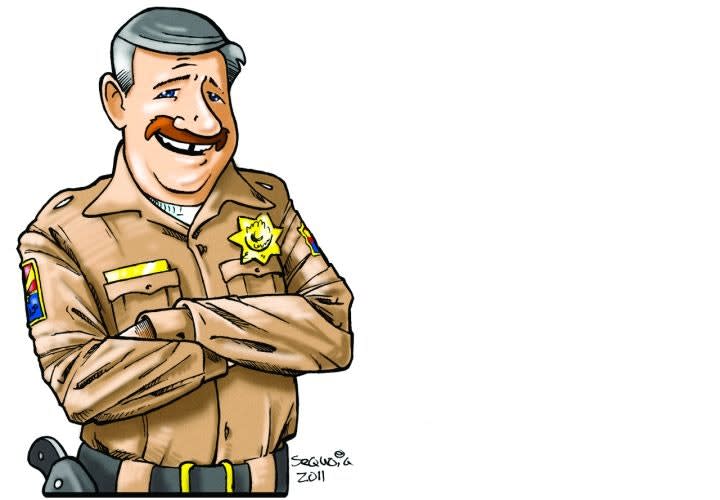I was recently reading how more and more professions are turning to checklists to improve safety. I first learned about checklists when I was learning to fly. My instructor demanded that I agree to never conduct my preflight preparation by memory and always, always use the checklists that were in every cockpit of every airplane I flew. Now doctors, engineers, and other professionals are finding that checklists improve safety and performance.
I have been advocating just this kind of practice for law enforcement for decades. But actually doing it was left up to Sgt. Mike Janin, retired from Beaverton, Ore. He actually put one together for his guys and gals several years ago.
Janin's list is great and it covers everything from getting yourself ready for your shift to preparing your patrol vehicle to hit the streets. It has you check your flashlight every shift, your firearm, your cuffs, your TASER, and on and on. The beauty of his list is that if you just take a couple of minutes to do it you can hit the street with confidence that your equipment and your mindset are ready.
I know, I know, you're thinking that getting ready to go on your shift isn't that complicated, and it isn't like preflight in an airplane. Or is it?
I was reading Atul Gawande's "The Checklist Manifesto" and thinking I agreed with the author that certain complex things need checklists. He cites medicine as an example.
Now I don't want you to be too concerned about your Doctor's skills and practices. But Gawande described an experiment with checklists in hospitals.
If you are not aware, a lot of folks die every year in our modern era from hospital-acquired infections. Which means that docs should be the model of infection prevention and control. And there's actually a very short five-point checklist that we all hope is a habitual part of our doctor's routine.
But Gawande found that when the nurses monitored the physicians in their procedures, fully 30 percent skipped at least one of the essential five steps to preventing infection. Worse still, this study was not just in a typical hospital setting, it was infection control in the ICU, one of the most critical places to control infections...Yikes!
Now don't go and delay your upcoming appendectomy just because I'm talking about a life and death issue in medicine. Hospitals are aware of the sources of the threat, and their staffs are working hard to prevent it.
But you don't know where the threat is coming from in your profession. Do you? Every time you hit the street, head out on a warrant, plan a buy/bust, or answer a call, you could face unknown and unpredictable dangers. That's why you need a checklist.
Do you wear your seatbelt? Does your flashlight work? And did putting your body armor on make you feel invulnerable or remind you that someone somewhere would love to test your armor today while you have it on?
Pilots know takeoff and landing are the most critical times of flying and are trained to do their checklists from the printed checklist and not from memory to ensure that one of the critical elements of flight safety isn't skipped. Physicians and surgeons are using checklists more and more to ensure patient safety. And I think we should each develop our own checklist for our assignment.
But checklists are of no use if we don't use them. I guess we should have a checklist to check our checklist. Seriously, the thing I really like about checklists is they are marvelous antidotes to one of our deadliest threats in law enforcement: routine.
Routine relaxes us, detrains us, whispers in our ears, "Don't worry about it. No one's around that corner. That alarm is always false. It's just a minor traffic stop. People with kids in the car are always 'yes' people."
Our notorious killer "complacency" is the ultimate result of routine's unrelenting pressure to detrain us. The antidote is a checklist.
Before your next shift try this simple checklist: 1. Mind right? Check. 2. Physically ready? Check. 3. Equipment ready? Check. 4. Vehicle ready? Check. 5. Sergeant happy? Uh...probably not. Well four out of five ain't bad. Just remember your priorities and prevent complacency.
Dave Smith is the creator of "Buck Savage" and a retired law enforcement officer from Arizona. Currently, he is the lead instructor for Calibre Press' Street Survival seminar.













